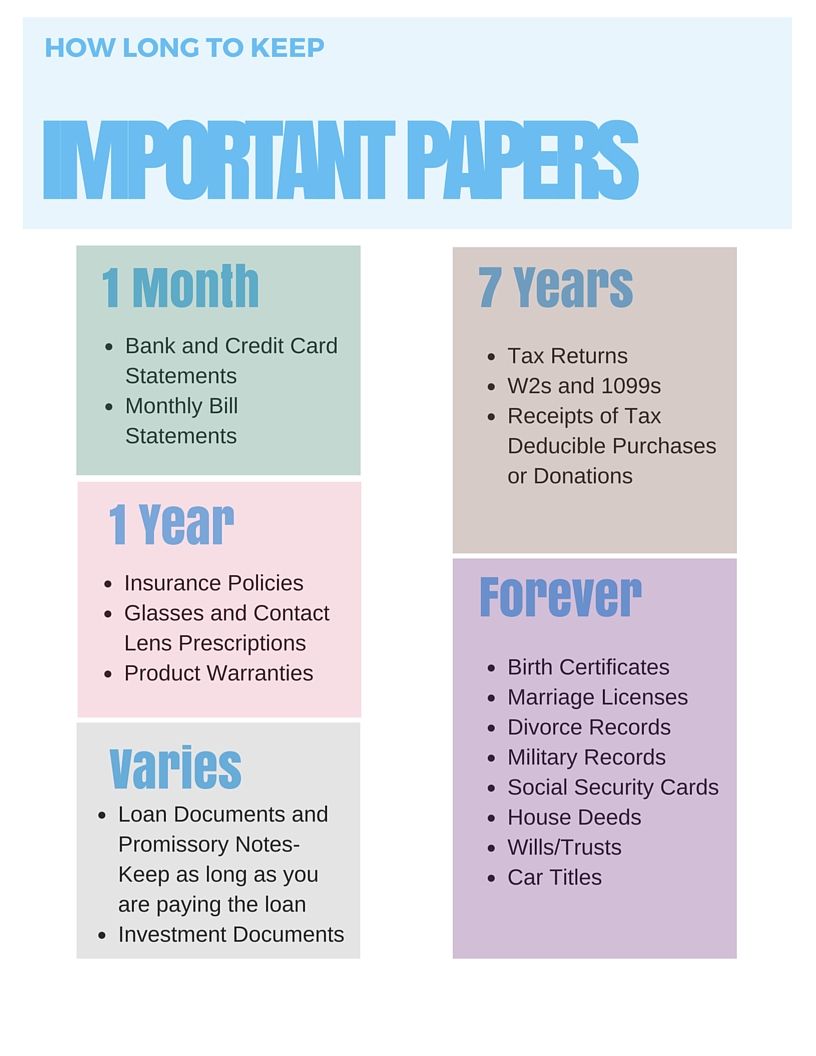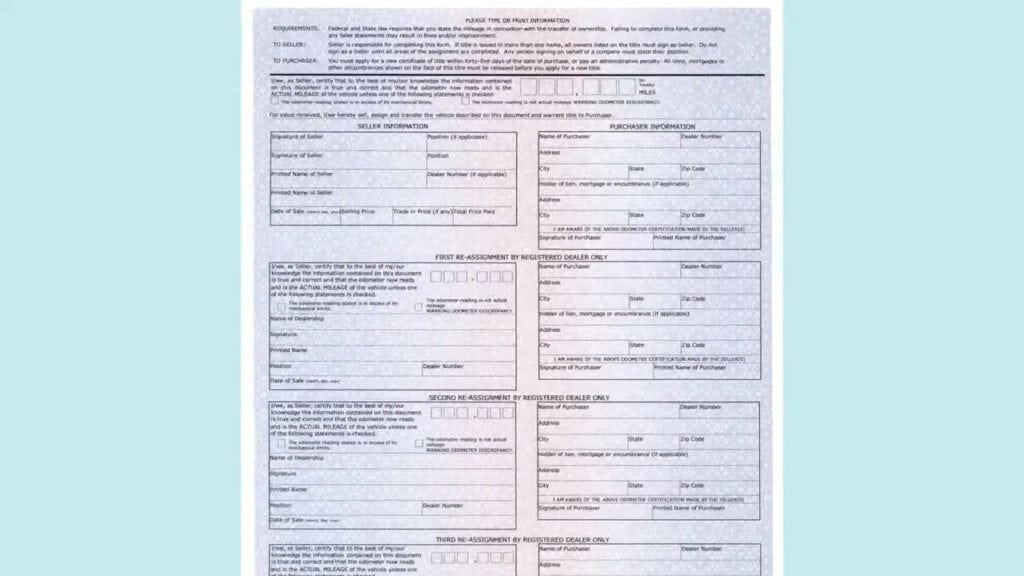Mortgage Paperwork: How Long Should You Keep It?

Managing financial paperwork can be a daunting task, especially when it comes to something as significant as a mortgage. You might find yourself wondering, "How long should I keep these documents?" This post will guide you through the necessary duration for retaining different types of mortgage-related documents, offering both clarity and confidence in managing your financial records.
Essential Mortgage Documents to Keep

Here are some key mortgage documents you should consider keeping:
- Mortgage Note: This document outlines your loan terms, repayment schedule, and your promise to repay the mortgage.
- Deed of Trust/Mortgage: This document serves as the legal agreement that you’ll transfer your property’s title to the lender if you default on the loan.
- Closing Disclosure: This provides a detailed breakdown of all charges and terms from the closing.
- Home Inspection Report: Although not related to the loan directly, it’s useful for insurance claims or property assessments.
- Payment History: Keep records of your mortgage payments for financial planning and dispute resolution.
- Tax Records: Documents like Form 1098 which detail mortgage interest payments are crucial for tax purposes.
🔔 Note: Always retain original mortgage documents like the note and deed in a secure place as they are foundational for ownership rights.
How Long to Keep Mortgage Documents

- Mortgage Note & Deed of Trust: Retain indefinitely. These documents are crucial for proving ownership and are necessary if you plan to sell your home or if you need to address any legal issues.
- Closing Disclosure: Keep for at least 7 years or longer, especially if you need to dispute any charges or terms related to your loan.
- Home Inspection Reports: Typically retain these until after you sell the home as they can be beneficial in proving the property’s condition at the time of purchase.
- Payment Records: For at least 7 years, which covers the IRS audit period, or until the end of the loan term if it’s shorter.
- Tax Records: At least 7 years for potential audits by the IRS, or until the statute of limitations for that tax year runs out.
Storing and Organizing Mortgage Documents

Proper storage and organization are vital for easily retrieving these documents when needed:
- Physical Documents: Keep them in a fireproof safe, and consider using an organized filing system with labels.
- Electronic Copies: Scan your documents and store them in a secure cloud service or on a hard drive with regular backups. Ensure the files are encrypted for security.
Handling Discrepancies or Disputes

Should you encounter any issues or need to dispute charges, having your mortgage documents readily accessible can expedite the resolution:
- Keep Records: Document all communications with your lender, including emails, letters, and phone calls.
- Proof of Payment: Retain copies of payments, including cancelled checks or electronic transfer confirmations.
- Engage Professionals: If disputes become complex, it might be beneficial to consult with a real estate attorney.
Legal Implications of Record Keeping

Mortgage documents play a significant role in legal contexts:
- Home Title: They prove ownership and rights to the property, which can be crucial in legal disputes.
- Tax Audits: Proper record keeping can prevent fines or penalties during an audit.
- Inheritance: These documents are essential for transferring property ownership to heirs.
Why Retain Mortgage Documents?

Here are some reasons why keeping mortgage-related paperwork is crucial:
- Proof of Ownership: These documents establish legal ownership, necessary for transactions like selling, refinancing, or adding someone to the title.
- Tax Deductions: Records of interest payments can lead to substantial tax savings.
- Dispute Resolution: Documentation is key in resolving disputes with lenders or in legal proceedings.
- Home Equity Loans or Refinancing: Lenders will require these documents when you apply for additional financing.
- Estate Planning: Having all documents ready simplifies the process for your heirs or executors.
To summarize, your mortgage paperwork is not just a collection of financial records but an integral part of your homeownership journey. Retaining these documents can save you from potential legal, tax, and financial complications. Ensure they are kept safe, organized, and accessible for when the time comes that you need them.
What should I do if I lose important mortgage documents?

+
If you lose important documents, contact your lender or the closing attorney for copies. You might also have to provide proof of identity and ownership. Additionally, consider keeping electronic copies to prevent such issues in the future.
Do I need to keep records of every mortgage payment?

+
While keeping every payment record is beneficial, ensuring you have enough to prove payment history for at least 7 years is typically enough for IRS requirements or lender disputes.
Can digital copies replace hard copies of mortgage documents?

+
Digital copies can often suffice, but for some legal situations, having the original documents might still be necessary. Always maintain both forms if possible for complete coverage.



